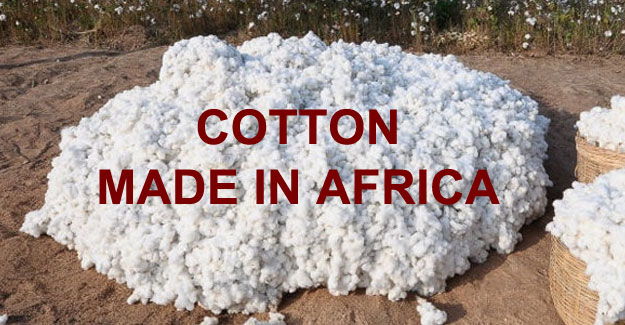
CMiA Recognised By Two Sustainability Standards
The CMiA standard is now recognised by the German Federal Ministry for Economic Cooperation and Development (BMZ), which administers Green Button. This recognition pertains to CMiA Cotton as a sustainable natural fibre.
In addition to meeting the human rights and environmental protection criteria of the government-run textile certification label Green Button 2.0, licensed companies must apply the meta-label approach to prove that they produce their products sustainably.
This recognition means that over 90 companies are currently able to meet meta-label requirements by using cotton from Cotton made in Africa; without a recognized certification seal, products cannot bear the Green Button label. To enable consumers to better navigate the market, Green Button’s meta-label approach recognizes only independent, exacting, and relevant certification programmes in the textile sector.
The Green Button ensures the entire company is audited to ascertain whether it acts responsibly. Offering individual products for show is not enough. Owned by the BMZ, it lays down the criteria and conditions for the Green Button, and independent auditors check compliance and ensure that standards are met.
The standards organisation Cradle to Cradle Products Innovation Institute has also recognized the requirements of the CMiA standard.
Cradle to Cradle Certified is the global standard for products that are safe, circular, and responsibly made. As a result, companies can use Cotton made in Africa cotton produced through the Hard Identity Preserved (HIP) system to meet the Bronze-level requirements in the Material Health category of the Cradle to Cradle Certified Product Standard Version 4.0.
By using CMiA cotton produced through the HIP system in their products, companies can also meet the Cradle to Cradle Certified Gold-level requirements in three categories: Product Circularity, Water & Soil Stewardship, and Social Fairness. Mass Balance material may be used to achieve the Gold-level in the two categories of Product Circularity and Water & Soil Stewardship as well.
Thanks to these developments, CMiA says it can now offer companies the raw materials they need for their garments and textiles to fulfil the requirements of two additional exacting sustainability standards.
Earlier this year CMiA hailed record levels of supply and demand, with production of CMiA-verified cotton growing by 10% for 2021 to 690,000 tonnes, meaning 40% of all cotton produced in Africa in the period was verified by CMiA.
Textile Excellence
If you wish to Subscribe to Textile Excellence Print Edition, kindly fill in the below form and we shall get back to you with details.













